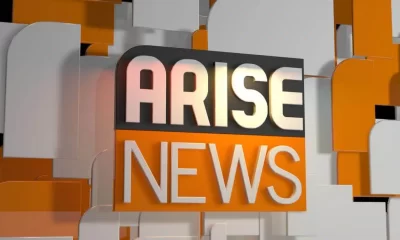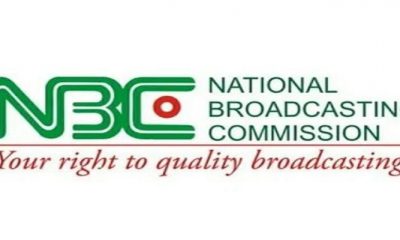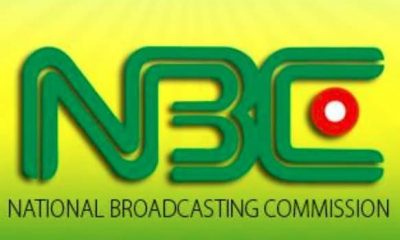Interview
NBC not interested in sanction, if broadcasters observe codes – Prof. Idachaba

The Acting Director General of the National Broadcasting Commission (NBC), Armstrong Aduku Idachaba said, broadcast stations in Nigeria are within the purview of NBC with set of rules known to all.
Amid sanctioning of Radio station that spewed public outrage in some quarters, he told CAPITAL POST in an interview that the NBC was not interested in sanctioning broadcast stations, but ethically run broadcasting stations that tend to unite the nation rather than inciting the people against each other.

Excerpts:
For the purpose of our reading public, may you introduce yourself?
My name is Aduku Armstrong Idachaba from Idah in Idah Local Government Area of Kogi State.
Question: Recently, there was a public outrage as a result of the National Broadcasting Corporation’s slamming of a Lagos FM station for granting an interview considered a breach of NBC code. What is your perspective on this?
Answer: I like the word you use ‘outrage’. Is it really much of an outrage? I think on a balance of scale, they are those who actually support the action of the National Broadcasting Corporation (NBC). They are those who expectedly should have full understanding that probably do not have understanding, but I don’t know either it is due to peer pressure or group interest pressure.
They are those from the beginning because of their cultivated orientation, they are not likely to agree with the action of NBC. The way to interrogate the issue is to look at the legality of the action of NBC. Is it backed by law? Act 38 of 1992; section 55 of 1999 act of Parliament of the Federal Republic of Nigeria to regulate broadcast industry. Part of the functions of NBC is to provide code of conduct for all broadcast stations and is also part of NBC to disseminate that code.
There is also a clear provision in section ‘N’ that provide for NBC to also impose sanctions on erring broadcast stations as well as revocation of license. Sometimes when people complained about the work of NBC with regards to fine, I use to tell myself whether they will have prepared the NBC to invoke a higher measure of punishment which am sure many of you will say is draconian. It may interest you to understand that the fine is not the last or heaviest of the sanction, if there is anything, perhaps, it is just intended to serve as a deterrent. What most Nigerians don’t know is that the sixth edition of the broadcast code actually, out of frustrations and the obvious manifestation of potentials of threat to life periodically and systematically from the misuse of hate speech the Commission actually taught that a fine of N20 million is appropriate as a deterrent for broadcasters who engage in hate speech. It took the Presidential Implementation Committee to review that code in the amendment and came up with a lower fine of five million.

However, we are beginning to hear that even that five million people are saying that it’s too high. Let me make this point clear that as the Director General of the National Broadcasting Corporation, we are not interested in the fines, what we want is clean, stable, proportionally run, ethically founded broadcast environment where broadcasters play according to rules. If there are are decency in broadcast, where they do what they are supposed to do; allow healthy communications; political development without promoting hateful, inciting comments about your neighbours, there wouldn’t be need for fine.
So we need a country where we have mutuality of respect for our cultural values and ethnic identities; we need to integrate ourselves to forge ahead in a way that makes us a vibrant country and we can’t achieve that by using divisive rhetorics; by incitive and instigating comments. We have repeatedly said that many countries have suffered the scourge of civil war with devastating consequences. Usually, don’t use divisive hateful terms. Part of the reasons for civil war was hateful comments and Nigeria was heavily divided. We used divisive, discriminatory comments. If you see a Yoruba man, hausa man will call him derogatory name; if you see a hausa man; Yoruba man will call him a derogatory name, so we need to reorientate ourselves using our communication tools; to unite ourselves.
I know I have given you a very long background, so let’s be very careful. Broadcast regulator is not saying that we don’t have the freedom of expression. You can stay in your room and abuse yourself and in your anger abuse your stepmother, but if you step outside, and begin to abuse in market spaces, of course, you are evoking responses. So, the Radio/TV is open market space. Understand that they are people out there that as far as they are concerned, you must respect them, you must respect them by the kind of communication you make. If you are a lone communicator and the person is not there with you and you pour all kinds of invective, there is no problem.
Question: Between the broadcast station and the interviewee, who should be liable for inflammatory statements?
Nigerian Constitution gives Nigeria citizens the freedom of expression. Anywhere you are, you can even abuse yourself, that is your freedom of expression. You can stay in your house, somebody you meet on the road and who was not fair to you, you can castigate him and lampoon, but don’t come out to use radio. That is why the business of the regulator is the channel of communication. We do not license people. We do not license individuals, but we license broadcasters and even before you issue license you are going to sign an undertaking that you will use the radio station or TV to promote national cohesion.
So when you make your radio available for inciting and inflammatory comments, is that promoting national cohesion? Certainly not. To answer you directly, the onus of responsibility lies with the broadcaster. It’s the broadcaster that does the gatekeeping. He is saddled with the editorial responsibility and the broadcaster is endowed with capacity to control the editorial contents, either from the professional acumen where you are able to engage the Speaker; where you are able to throw questions, where you are able to retract, you do in a manner that put the Speaker permanently in focus on the subject matter because many speakers, when they want to be mischief, the link issues and they go on attack on issues that are very irrelevant to the subject matter. So, an experience Speaker will be able to navigate and say, look on the issue,
Also, the broadcaster has control over the microphone. Somebody is making ridiculous statement, you are able to take him off. You see CNN, BBC most of the time they don’t take the risk of live broadcast especially when you cannot predict the temperament of a guest. If you are a guest and you are going away from the focus, they say sorry, we can’t take you, they yank you. But here in this country, you see some of the young journalists and broadcasters, if somebody is making ridiculous statement, they will say, eh, is that true. If it’s true, then, it’s serious. So they more or less encourage them to continue. There is no control, there is no regulation. Naturally, they are not supposed to be part of the discuss, but where they fail in their responsibility, we put a sanction on them.
If you see the case of Nigeria Info like you said, NBC has not said anything to Dr. Obadiah Mailafia. Our business is with Nigeria Info for allowing an individual which we don’t care who that individual is to come and vilify and attack and make unverified comments.
Interjects….. Question: But the onus lies on the prosecutor to prove the extent to which the comment evoke crisis, but in this case, somebody made a comment and there was peace, how would it be considered as inflammatory or libel?
Answer: You are talking about litigation. If the person want to take somebody to court, the onus is on the individual to prove how he was affected by the accused’s comment. That is not our business. Our business is don’t allow your platform to disseminate a spurious and unverifiable comments. If you do so, having signed that you are not going to do so, you are in breach of the law.
Question: The public perception out there is that the issue of hate speech bill is government of the day’s decoy to gag the press, hence, when it was presented, it died after the first reading. Again, Nigerians woke up to see NBC’s code amendment that looks similar. How do you reconcile this perception of Nigerians?
Answer: Thank you. Have you read the code of NBC? If you read American Constitution, you will see where it’s written that people have rights to express themselves, but nothing shall be done in breach of rights of others.
It says people shall have rights to freedom of movement, freedom of religion. If read down, there are exceptions. Exceptions are very clear to the extent that you don’t make comments that are likely to inflame or cause break down of civil law and order. So, misuse of speech or incitive comment is also criminal even in the United States. I have not seen any country that embraced unguarded comments and said it’s democractic. What is the fear in Nigeria? That government will gag? I tell you as a Chief broadcast regulator in Nigeria that there are over 600 broadcast stations in Nigeria and as we speak, there are over 23 broadcast stations in Abuja alone, equally Lagos is 26 and every day Radio/TVs are running and people phone in to make comments. We have one of the freest broadcast environment in the whole wide world.
We don’t censor. On the ratio, how many journalists apart from those very few on the social media which may be are carried and jailed three or four days. They are thousands and thousands of journalists. So, people are expressing themselves and we are saying do so, responsibly. We have a duty to protect our society. Some comments considered as being political are not only political, but very dangerous to the polity. Some comments are driven by ethnic chauvinism. Extreme religious fanaticism so we shouldn’t allow such comments to thrive. If people want to fight, they should do it at the level of their privacy. It’s their fundamental rights and for Radio and TV, the law says we should control.
Question: Increasing the penalty from N500,000 to N5 million for breaching the code of NBC. Don’t you think such serious proviso should have to come through legislative processes so that by tomorrow no lawyer would go to Court to repudiate it?
Answer: The NBC is set up by Parliament. The law establishing NBC is an act of Parliament. So the NBC is enforcing the law of Parliament. The power to regulate the broadcast medium is given to the regulator. Act 38 of 1992 as amended. Bide away, a lot of people who are ignorant of our laws don’t know that the power of NBC has been tested in court severally. Fortunately, the first judge that decided a case in favour of the Commission was an Igala Chief Judge by name Justice Stephen Adah.























